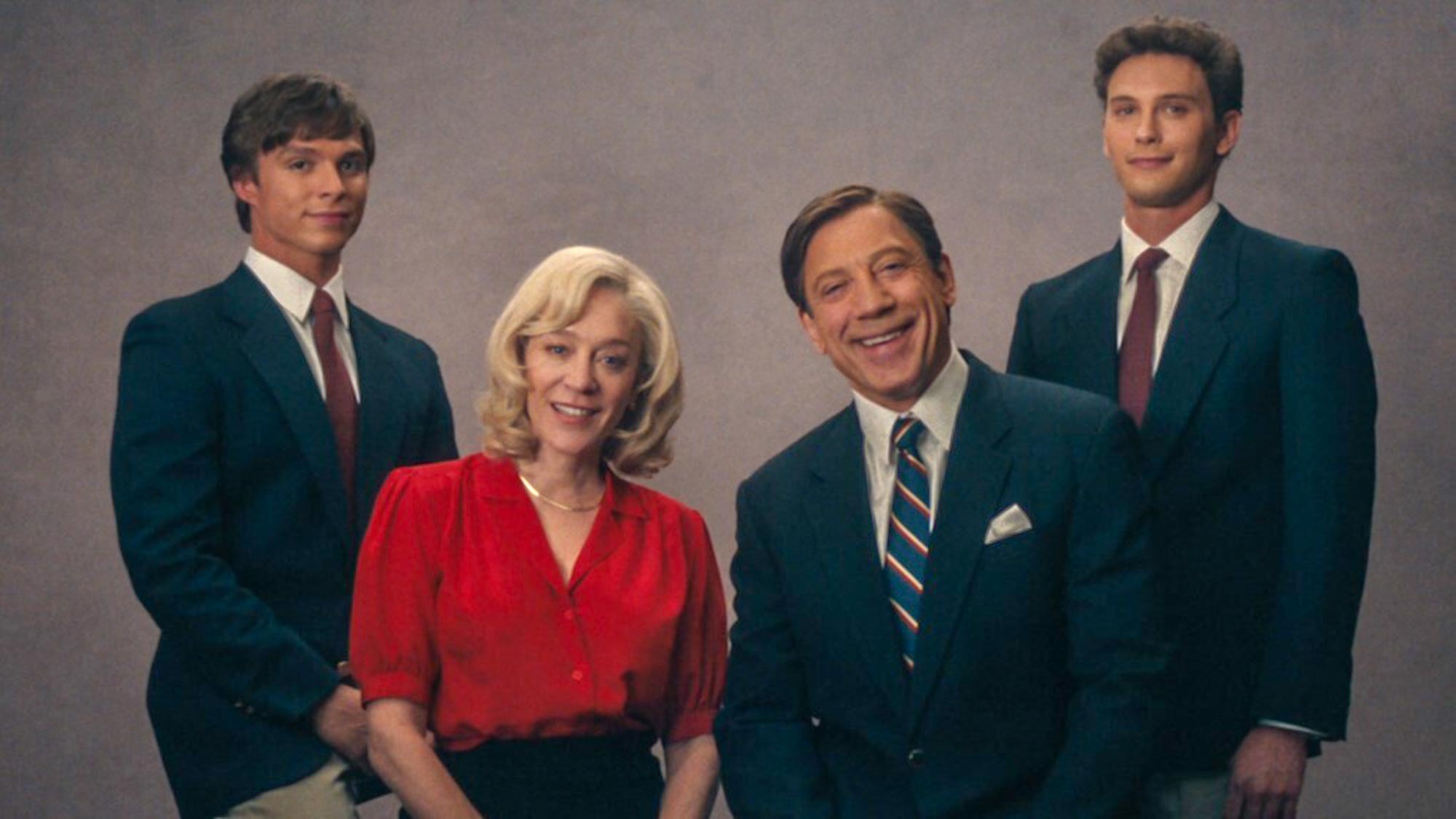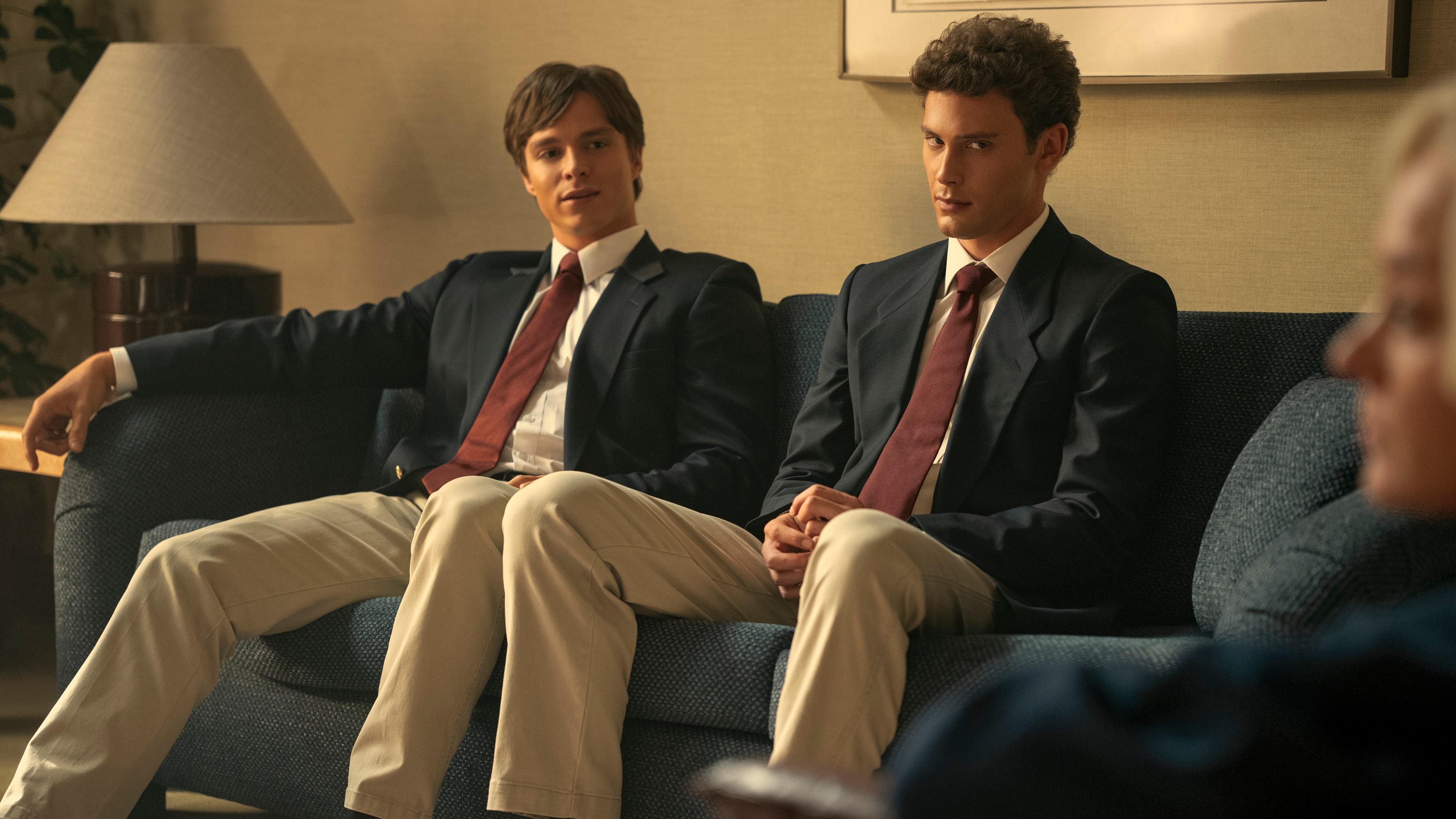I watched all of Netflix’s ‘Monsters: The Lyle and Erik Menendez Story’ — and I have regrets
Ryan Murphy's true crime anthology has taken a troubling turn

Content warning for mentions of rape and incest.
If you turned on “Monsters: The Lyle and Erik Menendez Story” and thought, “Yikes, Ryan Murphy has been reading way too much Wincest fanfiction,” you’re not alone. But unlike controversial TV incest ships like Dean and Sam Winchester from “Supernatural” and pretty much every pairing in “Game of Thrones,” the characters in Murphy’s show aren’t characters at all. They’re based on real people whose lives were essentially turned into nine hours of incest fantasy porn.
The plot centers on fictionalized versions of Lyle and Erik Menendez — the infamous real-life brothers convicted of murdering their parents. According to the brothers, they suffered horrific sexual abuse from their father, which their mother knew about and allowed to happen. Ever since their trial in the ‘90s, the brothers have maintained their allegations and stood by their fear that their parents were going to kill them to prevent the secret from coming out.
Despite the vast amount of possible true crime subjects like vicious serial killers and rapists, Murphy chose to center a sensationalized mini-series on what are likely two abuse victims without their consent or involvement. It makes me sick that someone would take a real tragic story of abuse and essentially invent a narrative for shock value when we have no way of knowing the real story.
I watched “Monsters: The Lyle and Erik Menendez Story” so you don’t have to. And though I wish I could get those nine hours of my life back, it’s nothing compared to the three decades (and counting) that the Menendez brothers have lost to prison.

The Menendez brothers don't get a voice
"Monsters" treats the on-screen relationship between the brothers more like a twisted rom-com than that of an older brother who emulates the sexual abuse that was enacted on him at an age so young he couldn’t even understand what he was doing himself. While that aspect of the story is addressed during the show’s first trial, there’s no excuse for the prolonged incest fantasy element other than sensationalism.
Some of the most questionable scenes include a very less-than-platonic dance montage, an incredibly erotic shower moment that bared all, and mouth kisses paired with romantic platitudes. It’s basically "Bonnie and Clyde but make it brothers."
Now, if this were a purely fictional story, these decisions would be moderately less appalling. But it’s not. The title alone promises to deliver the real brothers’ story. Yet how can the show even begin to do so without getting the story from the actual people who lived it?
Ryan Murphy has a problematic true crime pattern
This isn’t the first time Murphy has come under fire for sensationalizing true crime murder sprees. The first season in the “Monster” series centers on Jeffrey Dahmer, which somehow manages to romanticize the killer and the rapes and murders of young BIPOC gay men. Instead of honoring the victims, we once again get about 10 hours of glamorized torture porn. In fact, many victims’ families spoke out against the project. Instead of learning from that mistake, Murphy repeated it tenfold with the Menendez brothers series.
There are ways to fictionalize true crime without infuriating the entire internet. Netflix successfully did it with “Extremely Wicked, Shockingly Evil and Vile,” which centers on Ted Bundy through the eyes of his girlfriend Liz Kloepfer. Not only was she consulted for the project, but it masterfully shows how a serial killer can fool people while leaving no doubt that Bundy was a monster. It also pays tribute to the victims at the end. Was it perfect? No. Did it recieve some backlash? Sure. But it’s miles better than this and tries to be respectful to the victims.
The problem with Murphy’s new series is that the perpetrators are also the victims. Parricide during sexual abuse is a far more nuanced and complicated crime than being a serial killer. The show’s biggest flaw existed before day one of filming: the subject itself.
Who are the real monsters?
I spent nearly the entire show worried that the audience would be subjected to horrific visual depictions of sexual abuse at the hands of the boys’ father. Luckily, most of it was implied off-screen or off-camera. However, when you pair that with the graphically brutal murder scene that’s shown multiple times throughout the 9-episode series, the narrative is significantly warped against the brothers. Additionally, Erik and Lyle especially are often painted as sociopaths.
The series is titled “Monsters,” but when it comes to a story involving abuse, you should never have to wonder which characters are the monsters. With a subject like Dahmer or the upcoming “Monsters” season centering on Ed Gain, there’s no question as to who the aforementioned monster is. The Menendez series wants you to wonder if it’s referring to the brothers or their parents. It just feels icky.

Not only do the Menendez brothers not fit this formula type at all, but playing devil’s advocate in a story like this only serves to tactlessly further the frequent invalidation that victims often face. There’s a significant amount of evidence backing the brothers’ claims — many of which are post-trial discoveries that aren't addressed in the series — like Erik’s pre-murder letter referring to the abuse.
The Menendez brothers were always going to be an inappropriate subject for this kind of show unless they confessed to making the accusations up (which is not the case). Most people are simply not interested in a sympathetic portrayal of an alleged pedophilic father who abused his sons from ages six and up or a mother who willingly looked the other way.
Murphy wants flowers for bringing attention to the brothers
Tammi Menendez shared her husband Erik’s thoughts on the framing of the series — and they weren’t positive. He wrote, “I believed we had moved beyond the lies and ruinous character portrayals of Lyle, creating a caricature of Lyle rooted in horrible and blatant lies rampant in the show.” He added, “It is with a heavy heart that I say, I believe Ryan Murphy cannot be this naive and inaccurate about the factors of our lives so as to do this without bad intent.”
He further criticized Murphy, writing, “How demoralizing to know that one man with power can undermine decades of progress in shedding light on childhood trauma.” Erik also said, “As such, I hope it is never forgotten that violence against a child creates a hundred horrendous and silent crime scenes darkly shadowed behind glitter and glamor and rarely exposed until tragedy penetrates everyone involved.”
Murphy, in his own words, had a “lot to say” about the backlash. In an arguably condescending and defensive tone, he told ET, “I think it’s interesting that he’s [Erik Menendez] issued a statement without having seen the show.”
Well, Murphy, he’s in prison, but it’s pretty easy to sum up the most problematic highlights for someone who hasn’t seen the series. Murphy also noted that over half of the show tackles the abuse and said, “There were four people involved. Two people are dead. What about the parents?”
Murphy explained that the series is presenting the points of view and theories from “so many people who were involved in the case.” Except the show isn’t marketed as a fictionalized telling of what might have happened. The title itself promises the story — the true story.
No matter how many people “involved in the case” were consulted or depicted, Murphy was missing the input of two very important people: the subjects of the series. To completely invalidate their feelings on the matter without so much as an acknowledgment of what they went through is pretty telling about Murphy’s priorities and intentions going into the project.
Murphy’s statements got even more contentious in an interview with the Hollywood Reporter. He said, “And I’ll tell you my thoughts about the Menendez brothers. The Menendez brothers should be sending me flowers. They haven’t had so much attention in 30 years.”
Yet Murphy’s dismissal of the brothers’ trauma is the most telling component of why we got the final product that we did. He said that brothers are “playing the victim card right now — poor pitiful us — which I find reprehensible and disgusting.”
You know what I find reprehensible and disgusting? Dismissing the trauma that goes along with it and painting a pair of abuse victims as sociopaths for snapping in the throes of repeated paternal sexual violence. And not only that, but doing so without so much as speaking to them or their family when he gave a voice to everyone else.
If you or someone you love has experienced sexual assault or violence, please reach out to the National Sexual Assault Hotline or the National Domestic Violence Hotline.
More from Tom's Guide
Sign up to get the BEST of Tom's Guide direct to your inbox.
Get instant access to breaking news, the hottest reviews, great deals and helpful tips.

Xandra is an entertainment journalist with clips in outlets like Salon, Insider, The Daily Dot, and Regal. In her 6+ years of writing, she's covered red carpets, premieres, and events like New York Comic Con. Xandra has conducted around 200 interviews with celebrities like Henry Cavill, Sylvester Stallone, and Adam Driver. She received her B.A. in English/Creative Writing from Randolph College, where she chilled with the campus ghosts and read Edgar Allan Poe at 3 am.

